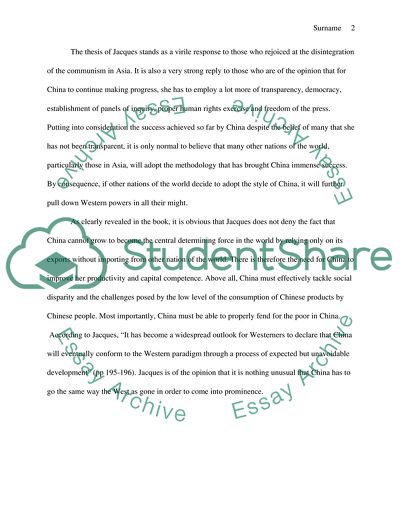Cite this document
(When China Rule the World Book Report/Review Example | Topics and Well Written Essays - 2000 words, n.d.)
When China Rule the World Book Report/Review Example | Topics and Well Written Essays - 2000 words. Retrieved from https://studentshare.org/politics/1738402-when-china-rule-the-world
When China Rule the World Book Report/Review Example | Topics and Well Written Essays - 2000 words. Retrieved from https://studentshare.org/politics/1738402-when-china-rule-the-world
(When China Rule the World Book Report/Review Example | Topics and Well Written Essays - 2000 Words)
When China Rule the World Book Report/Review Example | Topics and Well Written Essays - 2000 Words. https://studentshare.org/politics/1738402-when-china-rule-the-world.
When China Rule the World Book Report/Review Example | Topics and Well Written Essays - 2000 Words. https://studentshare.org/politics/1738402-when-china-rule-the-world.
“When China Rule the World Book Report/Review Example | Topics and Well Written Essays - 2000 Words”, n.d. https://studentshare.org/politics/1738402-when-china-rule-the-world.


